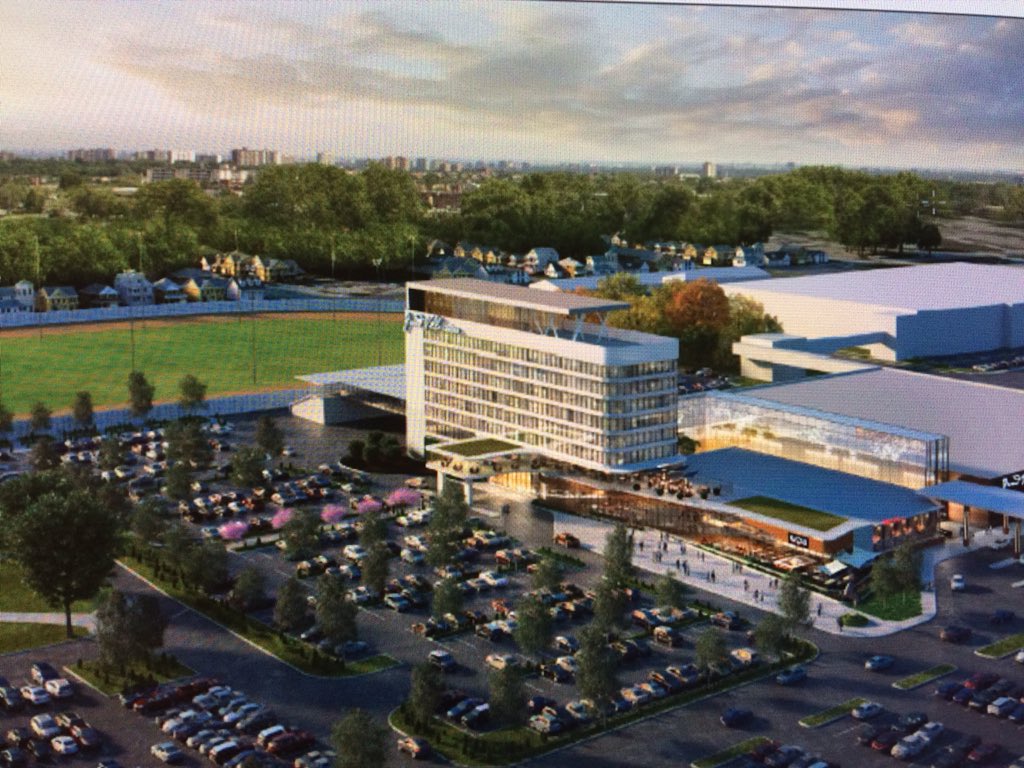What’s in the cards for the new casino proposed at the Western Fair District?

Gateway Casinos laid out its plans for a $142-million development at the city’s strategic priorities and policy committee meeting Monday.
The company hopes to build its “premium brand” Grand Villa casino, with a 125-room hotel, a new gaming floor, and four restaurants. It’ll also bring 700 new jobs to the city, said Keith Andrews, the company’s senior vice-president and managing director in Ontario.
Construction is broken down into two phases, each expected to take a year to complete.
The first phase will include building the gaming area, the food and beverage area, and the building’s back of house. The second phase will construct the hotel, and a new grandstand facing the race track.
Diagrams of each phase and glamorous-looking renderings of the finished project flashed across the screen, while Andrews and two architects fielded questions from city politicians. Everyone but Councillor Josh Morgan was in attendance.

Get breaking National news
The first inquiry came from Councillor Harold Usher, who pressed on how much parking space would be needed, and what would happen during events held at the other Western Fair buildings.
Andrews was unable to provide an exact number of parking spaces but acknowledged the company would be using 12 acres of land for both its development and parking. In the future, they plan to lease space for more parking and don’t intend to create a below-ground parking garage.
“We believe there’s ample parking in the area,” explained Andrews. “Parking is the most crucial piece for us, in terms of a development of this scale and size.”
Ward 4 Coun. Jesse Helmer raised the issue of the “downsides of gambling,” and asked how Gateway approaches issues of addiction and connecting visitors to supports when needed.
“Staff training is a huge element of it,” said Andrews. Back in 1994 when building the province’s first casino in Windsor, Andrews said he worked on the province’s first responsible gaming program.
The Ontario Lottery and Gaming Corporation’s executive director of Policy & Social Responsibility, Paul Pellizzari, was able to shed more light on problem gambling itself in Ontario, and the programs that’ll exist at the new casino.
Over the past decade, the number of adults with medium to severe issues with problem gambling have dropped from 5.8-per cent to 1.2-per cent, he explained.
“In terms of trying to get people to understand how gambling works, and be able to make healthy choices for themselves, you’re more effective… when you actually engage people,” said Pellizzari.
They teach people about the topics of randomness, or the value of taking frequent breaks, both online and inside newly dubbed “playsmart centres” within casinos.
The messages are taught through games themselves, and Pellizzari says they find retention is higher: messages are understood, and absorbed. Meanwhile, playsmart centres offer free coffee, telephone chargers, and TVs which entice visitors and allow independent education specialists more time to interact with them.
Gateway, Canada’s largest private casino operator, took over slot operations at Western Fair in May. The current lease, which costs Gateway $6 million a year, expires in 2020.












Comments